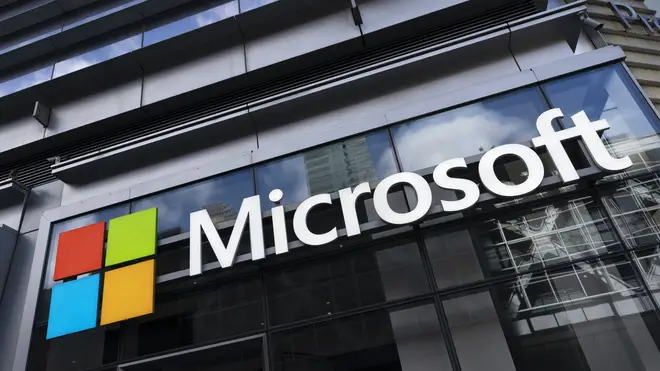
Ian Payne 4am - 7am
24 June 2021, 17:54

Google’s Android apps will run on the new system which also features a new Start Menu.
Microsoft has unveiled the next generation of its Windows software, called Windows 11, that has a new Start Menu and other features.
The newest version of Microsoft’s flagship operating system announced on Thursday will be a successor to today’s Windows 10, which the company introduced in 2015.
In a challenge to rival Apple, the company also announced that it will not force app developers to pay fees to Microsoft for using its app store; and that Google’s popular Android apps will run on its new system.
Windows 11 is expected to become available later this year on new computers and other devices and as a free update for those with Windows 10.
Microsoft’s virtual announcement event was affected by technical difficulties, forcing the company to recommend some viewers watch it on Twitter instead.
When it launched Windows 10 six years ago, Microsoft was hoping that the new operating system would help it rebuild loyalty among users who were increasingly relying on tablets, smartphones and other devices.
Windows has been a PC workhorse for decades. Its first version launched in 1985, offering computer novices a “graphical user interface” so they could click on icons and menus with a mouse button rather than simply type commands into a blank screen.
It’s been a core part of Microsoft’s business ever since, though its influence waned as PC sales declined with the rise of smartphones.
Microsoft said it would allow developers to bypass the payments system in its app store if they have their own commerce engine.
That could create problems for Apple, which has faced government scrutiny over its app store and a legal battle from Epic, the maker of the popular Fortnite game, which contends that Apple has been gouging app makers by charging commissions ranging from 15% to 30% for in-app transactions because it forbids other options on its iPhone, iPad and iPod.
“I believe this will be problematic for Apple in its antitrust dealings,” said tech analyst, Patrick Moorhead.
“Apple charging 30% in its store and Microsoft charging 0% and 15% if you use its commerce engine. Global antitrust units are currently scrutinizing Apple on this very point.”